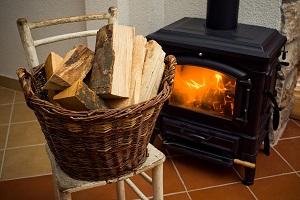Contrary to what most people think, transport is not the major source of particle pollution in the air. In fact, in Serbia and many other countries, domestic heating is the most important source of harmful particle pollution (PM2.5 and PM 10). In Serbia, pollution is a result of heating, which is mainly operated with individual wood or coal stoves and ovens. A recent study by WHO on the health impact of air quality in Serbia finds that nearly 3600 premature deaths every year are attributable to exposure to PM2.5 in 11 studied cities in Serbia. Large urban areas are particularly affected by dirty air, particularly during winter, when wood and coal are commonly burned to heat homes. The situation becomes further aggravated by the fact that energy poverty – a condition generally recognized to exist when people spend a disproportionate share of their income on fuel to heat their homes – is widespread in Serbia and the Western Balkans more broadly.
Major health and economic benefits can hence be reaped by improving air quality in Serbia, through energy efficiency measures, awareness raising, and air quality monitoring, among others. Discussing possible solutions, a group of UN agencies (UNECE (through the secretariat to the Convention on Long-range Transboundary Air Pollution), WHO, UNEP, UNOPS, UNDP, UNICEF, OHCHR and WMO) under the Regional Issue-Based Coalition (IBC) on Environment and Climate Change held a webinar on air pollution from domestic heating in Serbia – impacts, challenges and solutions on 26 May, which was attended by the UN Country Team in Serbia and other stakeholders.
Hearing about the latest data on impacts on health and vulnerable groups, such as children and youth, participants discussed different solutions, such as replacement schemes, non-technical measures, including behavioural changes, awareness-raising and capacity-building activities, and district heating and other infrastructure-related interventions. Under the Convention on Long-range Transboundary Air Pollution, the Gothenburg Protocol (Protocol to Abate Acidification, Eutrophication and Ground-level Ozone) includes emission reduction targets for particulate matter and recommends specific measures for residential combustion installations. Participants in the webinar agreed to join up the expertise of the different UN agencies to think about developing a joint programme on air pollution from domestic heating for Serbia.


